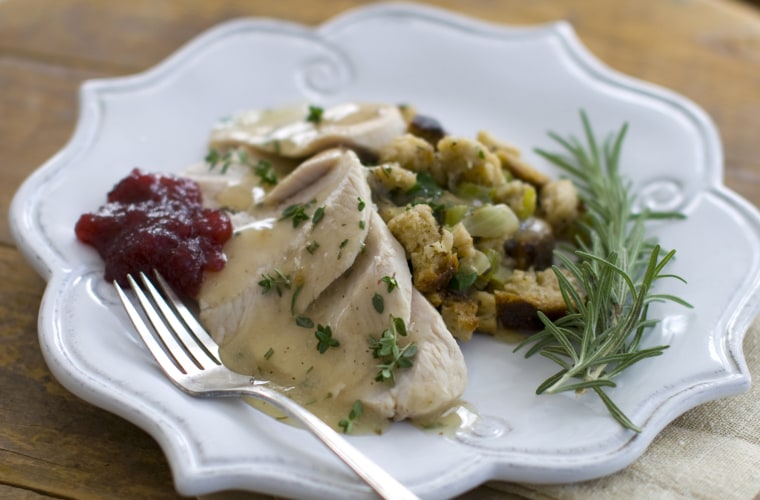The guests at Ilyssa Israel’s Thanksgiving table will get a chance to try a couple new healthy dishes she’s adding to her menu, such as roasted Brussels sprouts with quinoa and cranberries and garlic mashed cauliflower instead of potatoes. But those will be served alongside the traditional green bean casserole she makes every year – you know, the kind with cream-of-mushroom soup and those fried onion bits that come in a can.
Israel, 37, an executive assistant from Secaucus, N.J., will use her late mother’s recipe of sprinkling breadcrumbs on top followed by six pats of butter. “It’s so not healthy for you, but I don’t care,” she says. “It’s comfort food. My mom passed away when I was 27. When I think back to our Thanksgivings together, I think of happy times, and that meal always included this string bean casserole.”
What is it about holiday comfort foods that evoke such strong nostalgia? During this time of year, we crave items we wouldn’t touch any other day: gelatin deserts with fake whipped cream, deep-fried turkey or canned cranberries. Even the most die-hard foodies find themselves saying, “It’s not Thanksgiving until I have Mom’s maple-flavored, marshmallow-whipped sweet potato mash.” And recent research shows that a bit of nostalgia is good for us. When we think of fond memories from our past, we feel more socially connected and optimistic about the future.
The smells, tastes and traditions of Thanksgiving food tap into such powerful emotions, says Dr. Charlotte Biltekoff, assistant professor of American studies at the University of California, Davis and author of “Eating Right in America: The Cultural Politics of Dietary Health.”
“The rituals around holiday food connect us to the fantasy we have of the past, which we imagine was more wholesome, natural and simple,” says Biltekoff. “These connections are stronger than the reasons that normally govern our eating choices, like taste, convenience and health.” In other words, comfort foods temporarily make us feel better about living in a complicated, fragmented world.
The foods we choose to celebrate our national holiday also reveal our deeper values as a country, adds Rachel Laudan, a British food historian and author of “Cuisine and Empire: Cooking in World History.” Unlike other cultures that celebrate festivals with fancier fare, Americans stick with the basics of turkey, gravy and potatoes. “You don’t have fancy sauces or mousses or elaborate desserts,” she says. “It’s a meal that anyone can cook and encapsulates the middle-class ideal.” It’s also a family holiday and symbolizes motherhood and nurturing, she added.
For Israel, that green bean casserole takes her back to the square, white-walled kitchen of the house she grew up in. “As soon as I take a bite, I feel like my mother is with me,” she says. “We’re laughing and reminiscing, and it’s like she hasn’t been gone for the last 10 years.”
Sarah Elizabeth Richards is a New York City writer and author of "Motherhood, Rescheduled: The New Frontier of Egg Freezing and the Women Who Tried It"
